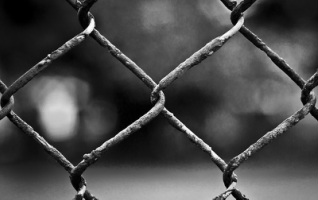 Are You Caught in An Over-Helping Trap? “It’s easy to get confused by the Messiah Trap, a two-sided lie that, on the surface, appears to be noble, godly, and gracious. After all, being a caring and helpful person is something we value,” writes Carmen Renee Berry, author of When Helping You is Hurting Me. Berry suggests that we believe one of two lies when we get caught in this trap. 1. Messiah Trap Lie Number One: If I don’t do it, it won’t get done. Messiah Trap people are doers, helpers and genuinely nice people. We keep homes and offices running smoothly. But we can become weary and overwhelmed when we believe another person’s happiness, spirituality, health and/or success is our God-given task. Berry says, “The Messiah Trap is an odd combination of feeling grandiose yet worthless, of being needed and yet abandoned, of playing God while groveling.” Maybe this applies to you. Maybe it doesn’t. But before you write it off, consider this:
2. Messiah Trap Lie Number Two: Everyone else’s needs should take priority over mine. Because we don’t want to be or appear selfish, we often neglect our own spiritual, emotional, medical or social needs. People depend on us for answers and unending support, which makes us feel important and worthwhile. However, when inevitable humanness breaks through our facade, we may find no one to help us. We can then feel isolated, lonely or disillusioned.  It’s a catch-22, because we dislike the imperfect sensation associated with insignificance or disappointment almost as much as we dislike losing control and not making everything just right. These less-than-perfect emotions and experiences feel so miserable that we deduce we must try harder to avoid feeling this way. Or we withdraw, pretending we never experienced the uncomfortable feelings in the first place. Either way, it is a genuine relief once we realize that God doesn’t expect us to have all the answers in order to be a valuable and compassionate friend, spouse, parent, colleague or Christian. We can break free from the MESSIAH TRAP or the OVER-HELPING TRAP. It's okay with God if we relax and let Him take-over what isn't our job to control anyway. “Relax, everything’s going to be all right; rest, everything’s coming together; open your hearts, love is on the way!” (Jude 1:1, THE MESSAGE).
2 Comments
 Awe-titude (Where Awe and Gratitude Merge!) I'm going to seminary! The word "excited" doesn't even begin to explain what I think about this. All words seem inadequate. While journaling recently, the coined word "Awe-titude" popped into my mind. It's where AWE and GRATITUDE merge. That's how I feel. Classes at Phoenix Seminary start next week. My life-long dream is coming true! Am I exaggerating about that "life-long dream" thing? Well, only a little bit. I didn't come out of the womb longing to go to seminary. Yet the dream has been hiding in my heart for many decades. Here's how it happened--My Journey to Seminary in Bullet Points:
 At the end of 2012, I sensed God by His Spirit whispering to me words that I found shocking. "Joan, ENOUGH! It is enough. You've done enough. I'm not asking for more." (For a continuing-to-recover perfectionist and workaholic, this was nearly unbelievable news! Actually, it still causes a tug of war within me.) Then to assure me that I wasn't going to spend the rest of my days in a rocking chair knitting scarves, God encouraged me with this message: "Joan, the rest will be icing, so sweet. If you go to seminary, it will take a miracle." And here I am at the beginning of 2014: living out the miracle. I'm going to seminary! My life-long dream. 54 years after that 12 year-old YES prayer to God. And Richard is part of my dream come true. He's delighted for me. See why I'm feeling such "awe-titude"? Please join me in the celebration. When have you experienced a kind of "AWE-TITUDE" in your life? I'd love to hear. Leave me a comment and tell me what you're thinking.
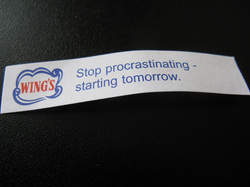 Maybe you’re tired of your inner “shoulda-woulda-coulda” voice, but you’d never call yourself a perfectionist because you tend to procrastinate. Guess what? Perfectionism (trying too hard to make it just right) and procrastination (deciding to do something and then not doing it) are like first cousins who pretend they aren’t related. As a procrastinating perfectionist, you may not finish a job application, take that vacation, or organize your closet. You may avoid creating new friendships, singing in the choir, or calling a counselor, because you’re afraid of making a mistake, being laughed at, failing others—or yourself. Delaying decisions becomes a habit. Although it may seem like a laid-back approach to life, it’s often painful and limiting. You can change your procrastinating tendencies. Just starting is a step out of the procrastination trap. 1. Instead of expecting to be the best (employee, parent, musician, you fill in the blank ________) in comparison to everyone else, commit to become the best version of yourself. 2. Limit all-or-nothing thinking. Choose your favorite color (deep red, ocean blue, sunshine yellow?) and the next time you feel stuck and start to procrastinate, brainstorm your options in that color instead of mere black and white. You do have choices. 3. When you’re tempted to procrastinate and postpone another task because it seems too hard or time-consuming, set the timer for 20 minutes. When the alarm sounds you can walk away or re-set for another 20. 4. Find a caring accountability partner who’ll listen to your frustrations without judging or trying to fix you and your procrastinating ways and then who will celebrate with you when you succeed. 5. Stand up to the shoulda-woulda-coulda tyrant in your head. Tell him to sit down and hush because you can make progress without him! Just as you develop physical muscle by consistently exercising your body, you can develop mental/emotional muscle by consistently practicing these and other anti-procrastination exercises. Freedom, here you come.  You really love this, don’t you? You’re so animated when you’re busy working. Although my client meant this as a compliment, I gagged when I heard her words. To me, they represented a lifestyle I’d tried to ditch. Anything that reminded me of my excessive behavior felt like a punch in the gut. I get a high when rushing, working and finding solutions. I am an adrenaline junkie. What do I mean?
What helps you become friends with tranquility again?  “I know I’m late. But I don’t feel like I’m being productive or that I’ve achieved my goals unless I’m rushing and at least a half-hour late for each appointment,” said my client as he burst through the door and sprinted past me toward our conference room. My internal reaction was: Well, Vic, you must feel a great sense of accomplishment today! He had arrived one and a half hours past our scheduled appointment time. Although I didn’t share his philosophy, something in his behavior rang a bell with me. Perhaps I was in awareness-mode, because several weeks later I admitted my own workaholic lifestyle. I was burned-out and wanted to change. Slowly I began to understand that the narrower definition of a workaholic is someone who is addicted to action. An action addict (like Vic and me) is driven to do too much, expect too much, rush too much and prove too much. Some refer to it as the “hurry sickness.” It can happen to either gender, yet Dr. Brent W. Bost, an obstetrician-gynecologist in Beaumont, Texas estimates that there are 30 million women in America who are so over-scheduled and over-stressed that it negatively affects their physical health, sex life, jobs, and relationships. The next time someone gives you the ultimate compliment for an action-addict: “You’re so busy. How do you do it all?” consider letting that be a signal to STOP. The antidote to action-addiction is to cease doing for a while. Be quiet. Rest. It will feel wrong. Your body, mind and emotions tell you that you must keep going. This advice to cease doing for a while reminds me of Psalm 46:10 in The Message: “[Stop!] Step out of the traffic! Take a long, loving look at me, your High God, above politics, above everything.” Experts insist that this is a vital step, just as it is important for the alcoholic-addicted person to stop drinking. Your body needs to detox from the chemicals aroused by your constant action. It will be quite difficult--and so worth it. For more information about action-addiction watch for next week's blog “Are You an Adrenaline Junkie?” What would it take for you to STOP for a while? 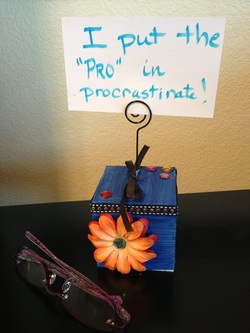 Yesterday was "Fight Procrastination Day" and I procrastinated in posting this blog to my site. Does that mean I put the "PRO" in procrastination? The dictionary indicates that to procrastinate means to defer action, to delay until an opportunity is lost. Dr. Ellis, a counselor who specializes in the issue of procrastination, defines procrastination as deciding to do something and then not doing it. Now, I want to clarify something. Delay and procrastination are not the same thing. There may be a legitimate reason for a delay. Procrastination is "to delay until it is too late." For example, say you received the brochure for a conference related to your field of interest. You read it, the workshops looked beneficial to you and you made the decision to go. But then you set the info aside and put off following through by calling to ask your questions, checking your calendar and registering...until it was too late. Then the day of the conference arrived and the opportunity was gone. You missed it. If this is your modus operandi and you really want to do it differently, there is hope. You can change.
And here are 10 practical tips for ceasing to put the "PRO" in procrastination. (Not in order of importance)
Which tip will you try this week? 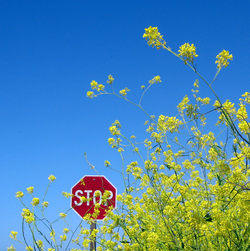 During a business dinner, an associate asked me about the book I was writing (The Relief of Imperfection.) When I mentioned the topic of perfectionistic thinking, workaholic behavior and burnout, he nodded and said, "Well, those things are not worth dying for!" Soon after this I read an article about a trend called "downshifting." Downshifters are men and women who choose to leave all-consuming jobs for a little slower pace so they can experience more enjoyment in their lives. I don't know about you, but I admit this sounds really good. Happy Labor Day weekend 2013! Perhaps you're really grateful that you get an extra day off. Or maybe you're one of the many who work through the holiday weekend. Before I write/say anything else, I want to acknowledge that I'm grateful for the opportunity and ability to work. You probably are, also (whether its work for ministry, volunteer service, an income-producing job, home schooling or taking care of your babies.)  More and more I talk with people in my coaching, mentoring, and every day life who are realizing that striving and working all the time (to be the best parent, to constantly reach for full potential for yourself and your family, to get more clients and make more money, to help others with very little time to refuel) is not what God had in mind when we made us with the capability to work. There is more to life. Life includes:
 LIFE is worth living for. So this weekend, how about STOPPING the work for a little while to focus on one of the life's enjoyments listed above. What do you choose? Whatever it is, have fun! You want to pray with me? God, teach me the meaning of life with its balance of labor, rest, and enjoyment. Slow me down to listen. I know "It’s useless to rise early and go to bed late, and work my worried fingers to the bone. I know You enjoy giving rest [and LIFE] to those You love. (Prayer based on Psalm 127:1-2 in The Message) 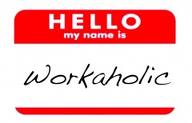 It's the weekend! Maybe this means you're taking a break from work. Maybe not. In my experience as a life coach, speaker/teacher/trainer, and mentor, I've noticed that many people struggle with issues related to work and service. It matters not if they're an executive, nurse, homeschooler, ministry volunteer or a young parent. Even medical exerts agree that there's an "action-addiction" epidemic. In her book Working Ourselves to Death, author Diane Fassel maintains that though action-addicts (another name for workaholics) work, serve, or rush a great deal, they aren't always working.
Yet, even Jesus--who came to earth to do the most important work of all--said "no" sometimes. (Check out Luke 8:26-38 & Mark 5:18-20) The truth is: Your work & service (whether it's in the office, in the home, on the field or at church) don't have to be relentless or perfect to be significant, meaningful and productive. :-) I find that such a relief. What about you? What kind of a worker are you?  "When you burn both ends of a candle, it may produce twice as much light, but the candle burns out twice as fast,” writes Myron Rush in his book, Burnout. “People experiencing burnout suddenly discover that all of their mental, emotional and physical energies have been consumed." This was true for me. I managed my family of two teenagers and developed my company into a million dollar endeavor, yet felt like a walking dead person. "I've fried my brain,” I said. “I'll never be the same." Yet I’m a grateful burnout survivor—along with others who have learned to stop burning the candle at both ends. How’d we do it?
This post is #4 in a four week blog series on BURNOUT.
I'm curious: Do you think that BURNOUT really happens? And who do you think tends to be susceptible? (This blog series is adapted from a series of short online articles that I wrote for Genius Ave.) |
Joan C. WebbWriting, teaching, coaching to empower and set free. |

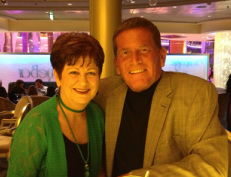





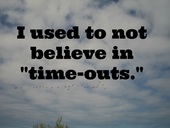
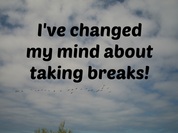
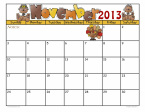

 RSS Feed
RSS Feed
